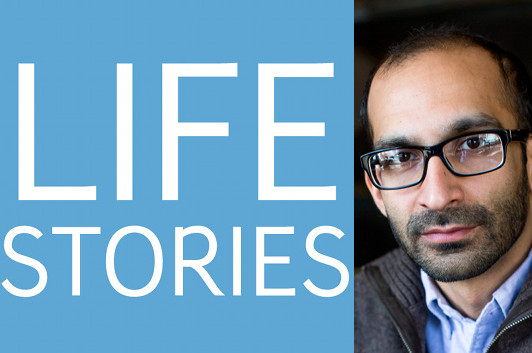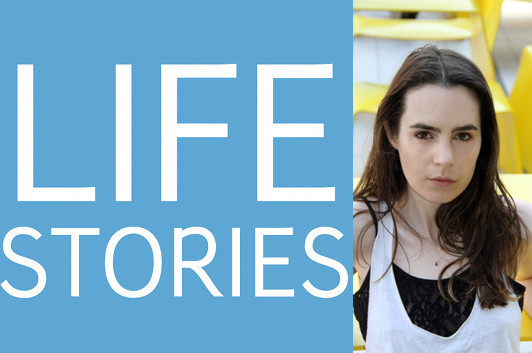Life Stories #47: Shahan Mufti
Subscribe to Life Stories in iTunes
In this episode of Life Stories, the podcast series where I talk to memoir writers about their lives and the art of writing memoir, I chat with Shahan Mufti, who brings his personal family history together with the history of modern Pakistan in The Faithful Scribe. Mufti’s parents met on the day of their arranged wedding, which also happened to be the day India launched an air strike against Pakistan; a few years later, they emigrated to Ohio, where Mufti was born—then came back to their homeland after the Iranian hostage crisis began to stir anti-Islamic sentiment in the U.S.
Mufti would eventually return to pursue an American education; today, as a journalist who describes himself as “100% American and 100% Pakistani,” he regularly travels between the two countries, reporting on events in Pakistan for Western media outlets. We talked about his family, and about how he sees Pakistan as the central battlefield in a war between Islamic tradition and Western modernity…even though it’s the first nation to make an explicit attempt to find the common ground between the two at a constitutional level.
Listen to Life Stories #47: Shahan Mufti (MP3 file); or download this file directly by right-clicking (Mac users, option-click). You can also subscribe to Life Stories in iTunes, where you can catch up with earlier episodes and be alerted whenever a new one is released. (And if you are an iTunes subscriber, please consider rating and reviewing the podcast!)
22 October 2013 | life stories |
Life Stories #46: Victoria Loustalot
Subscribe to Life Stories in iTunes
In this episode of Life Stories, the podcast series where I talk to memoir writers about their lives and the art of writing memoir, Victoria Loustalot opens up about This Is How You Say Goodbye, in which she looks back at her childhood memories of her father—who came out as both gay and HIV-positive when she was four years old—and her attempts as an adult, years after his death, to understand his life better. Loustalot and I spoke shortly after she’d done an event with Alysia Abbott, another Life Stories guest who’s written about having a HIV+ father, and so we discussed why stories like theirs (there’s also the recent memoir by Marco Roth) are appearing with greater frequency now. I also asked her about the alleged “cathartic” aspects of memoir writing:
“Memoir is not an autobiography, it’s not your life story. Memoir is memory, and to me, it’s… If you’re writing a memoir, it’s a reflection on a period of time. Just that memory, just that time, nothing else. And it can’t be too raw. You have to be ready to talk about that memory, and I think sometimes people try to start memoirs before they’re really ready. I don’t think the memoir can do the work of the healing; I think you have to be well on your way to healing… or at least have sort of a solid foundation, that you’ve taken care of some of the superficial emotional heartache of the issue, because when you do sit down to write a memoir, it brings up all these other things that you never even considered.”
Writing This Is How You Say Goodbye “both deepened the loss and set it free,” Loustalot added. “It deepened the loss because I got to know my father better through this book, and I also got to know the people who loved him better, and so getting to know him better, I loved him even more.” Yet that same process also reinforced his absence in her life… and, ultimately, instilled in her a fierce rejection of the sort of secrets that shaped her parents’ early marriage.
Listen to Life Stories #46: Victoria Loustalot (MP3 file); or download this file directly by right-clicking (Mac users, option-click). You can also subscribe to Life Stories in iTunes, where you can catch up with earlier episodes and be alerted whenever a new one is released. (And if you are an iTunes subscriber, please consider rating and reviewing the podcast!)
20 October 2013 | life stories |



 Our Endless and Proper Work is my new book with Belt Publishing about starting (and sticking to) a productive writing practice.
Our Endless and Proper Work is my new book with Belt Publishing about starting (and sticking to) a productive writing practice. 
